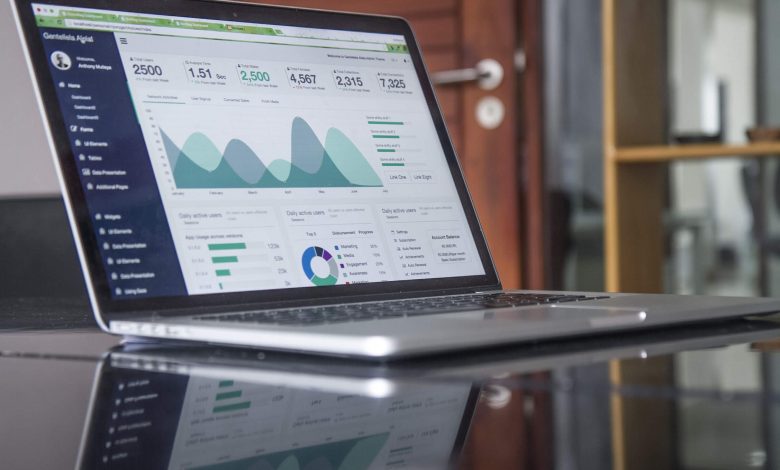8 Accounting Tools You Need to Run a Successful Small Business

Accounting can be a painful necessity, especially for an eCommerce business. 54% of small eCommerce businesses come to an untimely end because of mismanaged finances. Now, you can always hand your accounts to an accountant, but that would mean giving a total stranger the financial steering of your business. Are you ready to take that risk in the nascent stages of your small business? While you can always hire an accountant for more complex processes, you must know the basics of day-to-day management yourself. After all, your business is at stake, and the onus for financial risk management lies with you.
But it isn’t as challenging as you think it to be. To make things breathable for you, I have formulated a simple guide covering the accounting basics to understand your small business’s finances. Let us dive right into it, shall we?
8 Software and Tools to Make Small Business Accounting Simpler
Here are the best eight accounting tools and apps that will save your time and eliminate every chance of committing an accounting mistake.
- Track your cash flow with QuickBooks
To start with, your e-commerce business must operate out of a separate bank account. Tracking the cash inflows and outflows will help you ensure that your business is making ENOUGH money. When you are running a business, things always don’t look like they seem. So, you must track the timing of cash going out and coming in each week using QuickBooks.
- The tool will let you set reminders for due dates for your bills.
- The tool also offers simple cash-flow forecasting, warning you about hikes in expenses.
- Best suited for small companies, the plans for QuickBooks start at $26.95 per month.
- Understand your cost of goods sold using Float
At the beginning of your business, figure out your cost of goods sold (or COGS) using the weighted average method. However, for an expanding small business, you may find it challenging to understand which expenses to consider and which not. For example, if you pay your employees per unit of the product, it should come under COGS. For a flat hourly rate, that won’t be a part of COGS.
- Since more factors in the mix will only make it more complicated, use Float to track the actual COGS.
- You can also integrate the tool with other accounting platforms to gather information automatically.
- You can try the tool for free for the first 30 days and then sign up for a monthly subscription of $6.99.
- Calculate miscellaneous expenses with Pulse
Apart from COGS, there are other expenses like salaries, utilities, rest, etc. These expenses that stay constant irrespective of whether you are selling more or less or nothing at all are called ‘fixed expenses.’ Since such expenses affect your cash flow and profit, you need to track them with Pulse.
- You can use Pulse to monitor miscellaneous expenses on a daily, weekly or monthly basis.
- The tool offers cash-flow projections and lets you track cash in multiple currencies, making it the best option for small businesses that cater globally.
- The premium plan for the tool starts at $29 per month.
- Figure out your break-even sales point with FreshBooks
There is no point in running a business that isn’t fetching you enough profit, right? Plus, you wouldn’t want the profit margin to be stagnant. You would like it to flourish. This is why you need to budget and plan your business’s finances based on your break-even point. Now, tracking how close you are to the break-even point can be a harrowing saga. But not anymore with the best financial risk management software at your aid!
- You can use FreshBooks to integrate your expenses with your bank accounts and generate financial reports.
- You can give the app a spin using the free 30-day trial.
- If the tool ticks all the boxes, you can start a subscription for as low as $15 per month.
- Track your online payments with Sighted
With the pandemic hitting small businesses left and right, online payment systems are the only saviors that have kept start-ups and small operators afloat. However, online payments in the accounting mix only make things more complicated. Since the invoice system is a little different, it can be confusing to determine your month-end revenue. In this case, Sighted can be just what you are looking for, especially for solo entrepreneurs.
- The tool lets you customize online invoices, track door-step delivery expenses, manage merchant information and integrate your online payments system.
- Minus the heavy-duty features, Sighted offers a full suite of accounting features for small businesses.
- The tool is an affordable one, with a monthly premium subscription starting at $4.99 per month.
- Set up proper tax rates with Sage 50cloud
Taxes may seem a nightmare if your brand is a global one, selling to clients around the world. Also, if you deal with various products and services, consulting a professional would be wise. For a more independent approach, you can use Sage 50cloudto take care of most of it.
- This tool flags a product as taxable to calculate the tax payable amount once a customer puts in their address.
- If you operate globally, Sage lets you send invoices with pre-calculated taxes.
- This way, the tool saves time on administrative tasks by calculating what you owe in a tax season with just a click.
- The subscription starts at $50.58 per month.
- Plan for your tax payments with TurboTax
When it comes to tax, it isn’t just about collecting. Your business has to pay taxes as well. Depending on the geographical location from which your company operates, your tax payments will differ. At the basic level, you will have to submit the tax you’ve collected. So, you must know how to set revenue apart from tax.
- You can use TurboTax for step-by-step guidance for the tax-filing process.
- The tool comes with a clean interface that detects every overlooked tax deduction and speeds up tax filing.
- You can use the 30-days free trial for a month and then go for the annual subscription starting at $170.
- Carry our perfect auditing with TeamMate Audit
Unless you audit your small business’s balance sheet, you won’t be able to track its long-term financial health and see how your business is doing. Now, auditing the balance sheet can be difficult. Determining what comes under assets, and which are the liabilities to ascertain the business equity can be a confusing task. You can use TeamMate Audit to manage all aspects of the audit process.
- This comprehensive audit management system will help you identify and evaluate risk.
- You can use the tool to create and manage audits, allocate resources, and more.
- You can also monitor notifications and check your dashboards for details.
Parting words,
Do not make the mistake of using an Excel spreadsheet. Accounting software is an indispensable part for small business owners, especially solopreneurs. Basic accounting software can make your life a lot simpler. Use it to manage your cash flow every week. Give time to understand your expenses, sales, and profits. Also, don’t forget to set up the website of your small business to collect taxes automatically. These affordable and user-friendly tools will help you maintain your business’s financial health and keep it more than afloat.
Give it your best shot!





